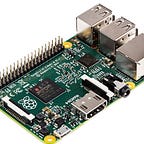The Allure of Rust Programming Language: Shaping the Future of System Programming
Introduction
In recent years, Rust has emerged as a revolutionary force in the landscape of system programming languages. Developed by Mozilla, Rust has rapidly gained a dedicated following among developers for its remarkable features that address some of the long-standing issues in programming. As we delve deeper into this subject, let’s explore why Rust is considered the future of system programming.
Performance and Safety
One of the most significant advantages of Rust is its ability to combine performance with safety. Unlike languages like C and C++, Rust provides memory safety without sacrificing speed. Its innovative ownership model ensures that memory errors, such as null pointer dereferencing and buffer overflows, are caught at compile time. This dramatically reduces the number of bugs and vulnerabilities in your code.
Additionally, Rust’s performance is comparable to that of C and C++, making it an excellent choice for system-level programming. The language’s ability to have fine-grained control over hardware, while maintaining safety, sets it apart from other system programming languages.
Concurrency Without Fear
Concurrency is a critical aspect of modern computing, and Rust excels in this domain. With its unique approach to ownership and borrowing, Rust allows developers to write concurrent programs with confidence. The borrow checker ensures that data races are caught at compile time, significantly reducing the chances of concurrency bugs that are notoriously difficult to debug.
This emphasis on fearless concurrency makes Rust an ideal choice for developing applications that require high performance and reliability, such as web servers, game engines, and real-time systems.
Friendly Ecosystem and Tooling
Rust boasts a robust ecosystem with a range of tools that enhance the developer experience. Cargo, Rust’s package manager and build system, simplifies project management and dependency handling. The Rust compiler provides comprehensive error messages, making it easier for developers to understand and fix issues.
The Rust community is also known for its inclusiveness and active support. Whether you are a beginner or an experienced developer, the community offers extensive documentation, tutorials, and forums to help you along the way.
Adoption and Industry Use Cases
Rust’s real-world applications are growing steadily. Companies like Microsoft, Google, AWS, and Dropbox are leveraging Rust for its performance and reliability. For example, Microsoft has used Rust to improve the safety and performance of their operating systems, while AWS uses it for developing performance-critical services.
The adoption of Rust in major tech companies is a testament to its capabilities and potential. As more organizations recognize the benefits of Rust, its adoption is expected to grow, further solidifying its position in the industry.
Conclusion
Rust’s combination of performance, safety, and concurrency support makes it a compelling choice for system programming. Its growing community and adoption by major tech companies indicate a bright future for this language. Whether you are a seasoned system programmer or someone looking to explore system-level development, Rust offers a reliable, efficient, and enjoyable programming experience.
Resources and Further Reading
For those interested in diving deeper into Rust, here are some valuable resources:
